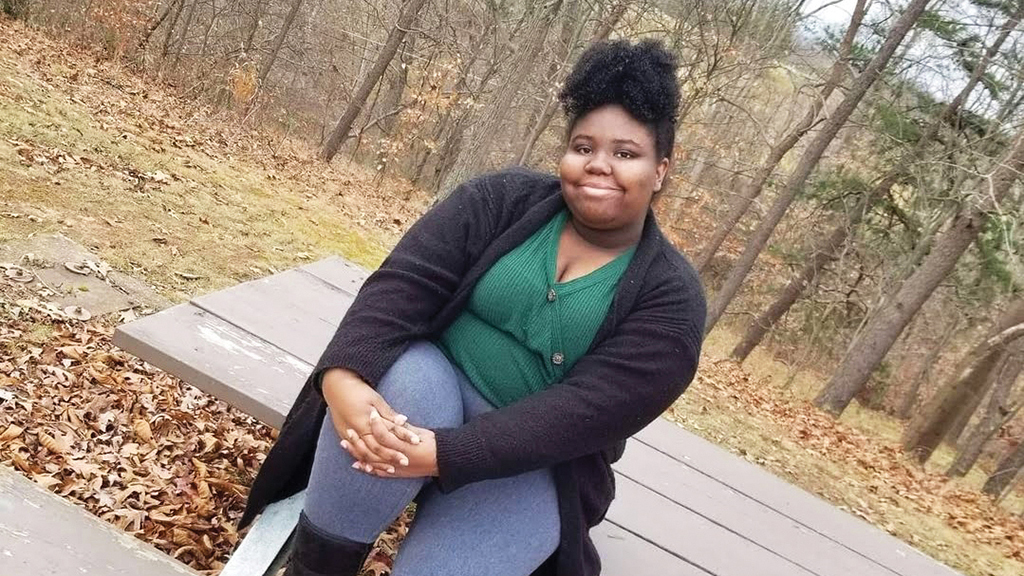A-Nya ’23
Even though A-Nya ’23 grew up in Dunbar, W. Va., for most of her life she didn’t really see herself as Appalachian.
“I felt dissociated from the stereotypical image of Appalachians as white and rural,” she said. “I didn’t see people that looked like me.”
A-Nya’s sense of identity changed in high school, when she found connection in some of the regional movements for youth empowerment and leadership. A youth fellowship with Rise Up West Virginia first ignited her activism. She was introduced to mind-opening concepts like how power is communicated through physical positioning and how to empower others. “I fell in love,” she states unequivocally.
As part of the fellowship, A-Nya led a community project and experienced unusual success as a new organizer. She coordinated a forum with political candidates focused on the opioid crisis. The event incorporated interviews and questions from the audience as well as opportunities to experience what it is like to be a convicted drug felon through role-playing scenarios.
One particular concern, that drug felons weren’t eligible to receive food stamps after completing their sentences while other felons are, caught the attention of a state lawmaker. Within a year, West Virginia law was amended to correct that injustice.
“It is really cool that thousands of people can feed their kids because of something I did,” A-Nya said.
A-Nya went on to join the STAY Project and Black Appalachians Young and Rising, West Virginia organizations run by young people advocating for engaged and inclusive communities throughout Appalachia. She serves on the steering committees for both organizations.
“Both are autonomously run by people under 30 years old,” she said. “They gave me space to explore and an understanding that people of color have been here for a long time.”
I used to see Appalachia through a lens of struggle and hardship. Now there is an added layer of fight and spirit. It is a strong place.
A-Nya ’23
One of the things that impressed A-Nya during her visit to Berea College was how activism was highlighted. “It seemed a place that could be a vector for enhancing my organizing skills,” she said.
As a student, A-Nya has delved into the complexities and realities of the region through involvement at the Loyal Jones Appalachian Center. She recommended one of her fellow advocates as a guest speaker for Dinner on the Grounds. Jennifer Wells of the former West Virginia Healthy Kids and Family Coalition, a social justice advocacy organization, spoke on the importance of healing and care in rural community organizing.
While working at the Appalachian Center, A-Nya was encouraged by director Chris Green to attend the Appalachian Love Fest in Harlan County. She purchased a diverse collection of new regional music for the Center, including punk.
“At Berea, my ideas are really valued,” she said. “It means a lot that an adult, an academic, validated my non- stereotypical view of Appalachia.”
Another thing at Berea that helped her embrace her place in the region was a class on Black and Indigenous Appalachians, a course that explores
the contributions and livelihood of those often forgotten or dismissed from typical Appalachian storytelling. Read more about these untold stories.
As A-Nya looks to the future, she has plans for her degree as a psychology major and peace and social justice minor. She wants to continue this kind of change-making at a nonprofit organization or as a psychological researcher. “I want to be in the social justice space,” she said. “I have worked with leaders who show they care about this region and actively fight to better it. I used to see Appalachia through a lens of struggle and hardship. Now there is an added layer of fight and spirit. It is a strong place.”


